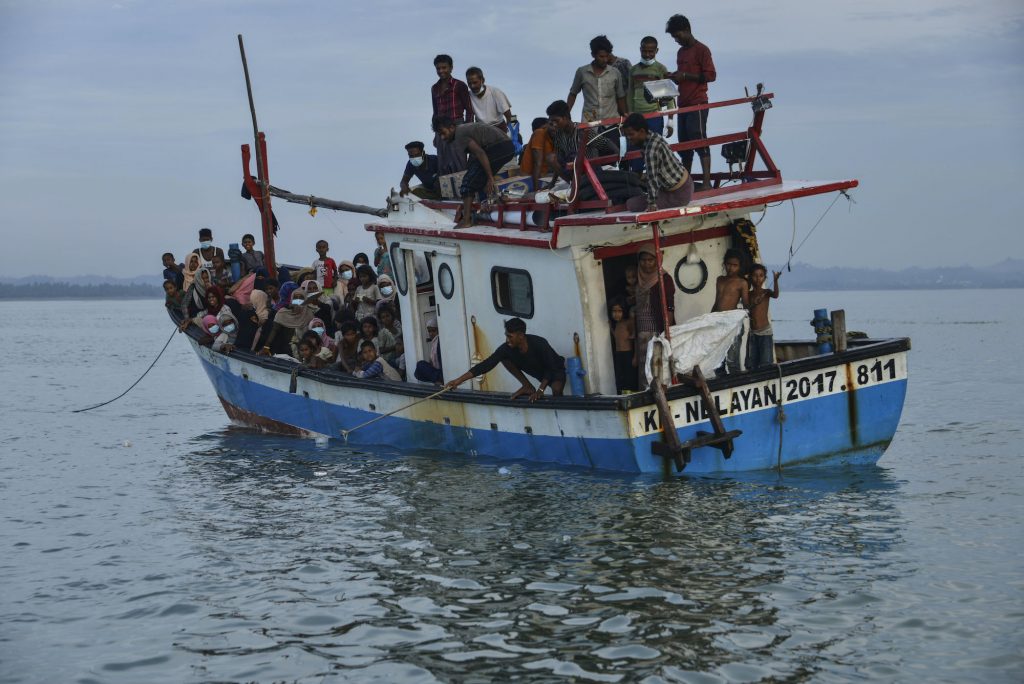Nearly 100 Rohingya smuggled from Rakhine State and bound for Malaysia were arrested in Yangon, police announced Thursday.
By AFP
Nearly 100 Rohingya from conflict-scarred Rakhine State were arrested in a raid in Yangon, police announced Thursday, with authorities saying they had been headed to Malaysia as part of a people smuggling network.
The plight of the Rohingya captured international headlines in 2017 after a military crackdown in western Rakhine state sent almost 750,000 fleeing across the border to Bangladesh.
Members of the stateless minority group have long faced discrimination in Myanmar, where they are denied freedom of movement and citizenship, and lack access to work, healthcare and schools.
With the remaining languishing in camps that rights groups have described as “apartheid-like”, many choose to embark on treacherous routes with people smugglers to reach Malaysia and Indonesia.
The latest smuggling operation was uncovered by Yangon police Wednesday, who raided two houses in Shwepyithar Township and discovered 99 Rohingya.
“They came from Maungdaw, Buthidaung, Sittwe and Kyauktaw townships to travel to Malaysia to work,” Tin Maung Lwin, the township’s deputy police superintendent, told AFP Thursday.
Images published by local media showed the Rohingya huddled barefoot and wearing face masks, in front of a leafy multi-story house where they had reportedly been hiding for months.
Seventy-three of the group were women, Tin Maung Lwin told AFP, and they were accompanied by a number of children between the ages of five to 10.
They are currently quarantined in a local university where they have been tested for coronavirus, said Kyaw Soe Aung from the Arakan City Cooperation Network, a Rohingya aid group.
“We heard they haven’t eaten for three days, so we sent them food and clothes yesterday,” he told AFP.
Police said authorities were first alerted to a “suspicious man” who wasn’t able to speak Burmese fluently.
They followed him to a house where they discovered the others. No smugglers were reportedly arrested.
“We will continue investigating the people who brought them here,” Tin Maung Lwin said, adding that he couldn’t say whether the Rohingya would be sent back to Rakhine state.
Myanmar – which has long maintained the 2017 crackdown was necessary to root out Rohingya militants – now faces charges of genocide at the UN’s top court.
Faced with widespread discrimination and little chance to build a viable livelihood, many of the Rohingya trapped in squalid camps are willing to pay around $1,500 to people smugglers – life savings for some – in order to get out of Myanmar.
“Camp leaders try to warn people about the [people smugglers], but people are still trying to leave,” said one Rohingya man at Thet Keh Pyin camp near Rakhine’s capital Sittwe, declining to be named.
“It is their hope for a better life.”
Correction: References to “trafficking” have been changed to “smuggling” to align more closely with the definition contained in the United Nations Trafficking in Persons Protocol.







